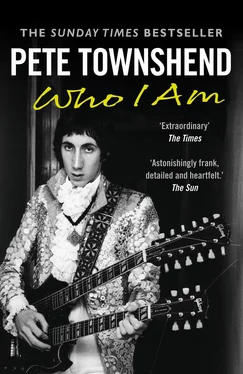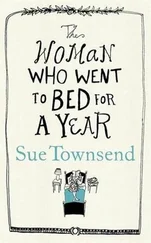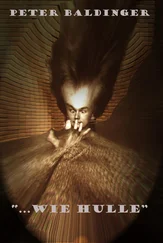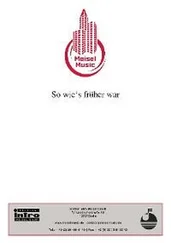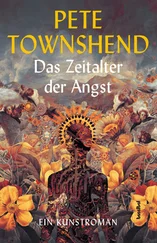1 ...7 8 9 11 12 13 ...29 I was outside our classroom talking to the form teacher for the final year, the redoubtable Mr Hamlyn, when Roger swaggered up in his Teddy Boy outfit, his hair combed into a grand quiff, trousers so tight they had zips in the seams. Mr Hamlyn welcomed Roger with the weary patience of one who knew there was little point enquiring why Roger had returned to an institution that wanted nothing to do with him. Until he was expelled Roger had been a good pupil, and I think Hamlyn begrudgingly respected him.
A few boys looked over at us with interest, curious to see whether Roger still bore me any ill will. He simply informed me that John had told him I played guitar pretty well, and if an opportunity came up to join his band, was I interested? I was stunned. Roger’s band, The Detours, was a party band. They played Country & Western songs, ‘Hava Nagila’, the hokey-cokey, the conga, Cliff Richard songs and whatever was high in the charts at the time. Roger ruled The Detours with a characteristically iron hand. Judging by the faces of those around me, just the fact of Roger speaking to me meant that my life could very well change.
As calmly as I could I told Roger I was interested. He nodded and walked away, but I wouldn’t hear from him again until months later. By that time I had enrolled in Ealing Art College.
5 THE DETOURS
Ealing Art College was a revelation in so many ways: socially, creatively, sexually and musically. The first life-changing event that hit me was the sight of an especially pretty girl across a crowded classroom, and I soon discovered, to my delight, that she adored Ella Fitzgerald and also seemed to like me.
I had very clear musical taste that was more balanced than that of most of those around me. I was impressed by the new trends in commercial music, but not overcome. Elvis was OK, but he was no Sinatra. Connie Francis had an erotic kittenishness but was nothing compared to Ella. Ealing offered lunchtime clubs dedicated to Bebop, Dixieland, orchestral music and opera, played in the lecture theatre on a large, high-quality speaker system. Enthusiasts would make remarks or give short, unpretentious lectures. I attended all of them. But I didn’t just think about music. I also had the ability to create alpha-state music in my head, go into a creative trance, have musical visions, and after nearly six years of dormancy this gift was restored by hearing orchestral music again.
Back then I had no idea what all this music was, nor did I have a good working sense of different composers, but listening to Jerry Cass’s radio and growing up with my parents had fed my musical imagination.
I could play a little jazz on guitar, but I told the girl I had a crush on that I sometimes played in a jazz group. This was stretching the truth: I had performed some local sessions, but only with pop bands that played crude jazz to encourage the audience to go home at the end of a long evening.
At one point this girl and her older boyfriend had a tiff, and she sought me out for some intimate time together. When she tilted her head for me to kiss her, I didn’t know what to do. When it came to girls I was still living in a fog of insecurity. When she turned to someone else in our class for comfort, I was crushed. In my imagination she was perfect. Of course, that was the problem. I was living in my imagination, whereas she was real, with a young woman’s needs and desires.
In early 1962, after receiving the call I’d been waiting for, I approached Roger’s house to audition for The Detours. Before I got there, a blonde girl opened the front door and began slowly walking towards me. She was weeping, but when she saw my guitar case she stopped and pulled herself together.
‘Are you going to Roger’s?’
‘Yes.’
‘Well, you can tell him this: it’s either me or that bloody guitar of his.’
I knocked on Roger’s door and delivered the message, fully expecting him to break down in tears himself and run after the divine creature, promising never to touch a guitar again.
‘Sod her,’ he said. ‘Come in.’
We went straight upstairs to Roger’s bedroom. He was distracted, and it later turned out that one of the criminals he hung around was hiding from the police under the bed where I sat down to play. The audition was very quick. ‘Can you play E? Can you play B? Can you play “Man of Mystery” by The Shadows? “Hava Nagila”? OK, then. See you for practice at Harry’s.’
***
The first show I played with The Detours was at a hall next to Chiswick Swimming Baths in early 1962. I was replacing Reg Bowen, a guitarist who wanted to become the band’s road manager. Roger was a sheet-metal worker by day, and had cut his fingers badly that morning, so he disappeared offstage almost as soon as I arrived. I was left to play fumbling lead guitar.
Most of the first gigs I played were arranged by our drummer, Harry Wilson, or his father. We liked Harry. When he made a mistake he’d blush, rage, apologise, analyse, then cheerfully carry on. We rehearsed in his West Acton home, and Harry’s father’s van carried us to our little shows.
I had a single-pickup Harmony solid-body Stratocruiser guitar that Roger had sprayed red for me. We executed fancy choreographed foot movements as we played songs by Cliff and The Shadows (John was especially good at this, Roger especially bad), and we travelled around Greater London and occasionally beyond, performing at weddings, company functions, birthdays and pubs. At one wedding a pianist hired for the intermission laughingly explained that when he was drunk – which was most of the time – he could only manage to control his left hand, the one looking after accompaniment. His right hand took off searching for the melody with a mind of its own. It was one of the funniest things I ever saw, and I worked hard to learn how to do it. At another wedding we received a £50 tip from the bride’s father, and with this astronomical sum we were able to think about buying our own van for the first time.
Although The Detours was Roger’s band, the singer then was Colin Dawson, a handsome young man with a strong conventional pop voice. At an engagement party the bride-to-be tipsily fell for Colin, and there was a moment when the prospective bridegroom threatened a fight. We saw fighting aplenty, and I have Roger to thank for the fact that no one ever laid a hand on me. Even a nasty drunk knew better than to provoke him.
Everyone around me in The Detours drank. Colin’s girlfriend Angela turned eighteen and threw the first teenage party I’d ever attended. People arrived, drank half a bottle of beer and pretended to be drunk so they could spend the rest of the evening snogging whoever they could lay their hands on. It didn’t work for me.
A girl in my class at Ealing took an interest, though, and one day I found myself holding hands with her as we walked through an art gallery. A few days later we went to a party, where she quickly got drunk and started kissing me. This was my first kiss, and I’m not sure it’s fair to say I enjoyed it. I felt more like being eaten alive. A few moments later she kissed another boy from our class, and then disappeared.
It was an excruciating journey home alone on the train; the girl in question was nice enough, but her betrayal didn’t begin to explain the astonishing pain I felt.
Towards the end of my first art-school year The Detours played our first club dance at the Paradise Club in Peckham. We brought in a new drummer, Doug Sandom, and though we were sorry to see Harry go, Doug focused us. He was about ten years older than we were, and he acted like a proper professional musician. One summer evening at Peckham we clustered the equipment closely around his drumkit, turned our overall sound down and achieved a decent balance for the first time. I began to feel we might really have a chance to make some money with The Detours.
Читать дальше
